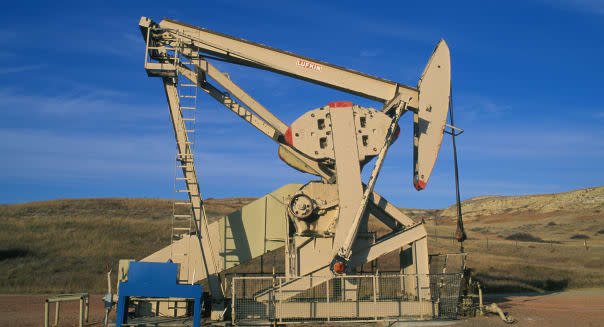Don't Expect U.S. Energy Independence to Bring Lower Gas Prices

At long last, true energy independence for the United States is within reach. But will it matter?
Last week, the White House revealed that domestic oil production has hit its highest levels in 24 years -- while oil imports are at a 17-year low. As of this moment, the U.S. imports only 35 percent of its oil needs.
According to the latest monthly "Short-Term Energy Outlook" published by the Department of Energy, October marked the first month in nearly two decades when U.S. oil producers sucked more oil out of the ground than we imported. It won't be the last time this happens, either.
October saw U.S. crude oil production of about 7.7 million barrels per day, and according to the Department of Energy, production could grow 10 percent to as much as 8.5 million barrels per day next year. So unless there's a massive increase in the amount of oil consumed in the U.S., chances are good that for months -- if not years -- to come, the U.S. will keep on producing more oil than it imports.
How Did We Get Here?
Administration spokespeople are taking some credit for these developments, which they ascribe to a combination of tightened fuel economy standards and energy efficiency regulations, which have reduced fuel consumption in the U.S. -- plus increased exploitation of domestic resources through hydraulic "fracking" of oil-and-gas-bearing rock formations.
A third factor -- one the administration is unlikely to tout quite as loudly -- is the fact that with oil prices having roughly doubled over the past five years thanks to rising global demand, the high cost of gasoline has played its own role in reducing consumption, and imports.
What It Means for You
Whatever the causes are, this does appear to be a trend that's here to stay -- at least, assuming the Department of Energy's projections are on the mark.
But will it affect you from a price-at-the-pump perspective? Probably not a lot.
%VIRTUAL-article-sponsoredlinks%Sure, knowing that the U.S. produced more oil than it imported gives us all a nice warm-and-fuzzy feeling. America is the land of independence, and for a whole tankful of reasons, we'd like the idea of being "energy independent." That doesn't mean that the term has much relevance in a global economy, however.
Oil is, after all, a global and fungible commodity. It can be produced "here," but quickly pumped into a tanker and shipped over there (wherever "there" might be) to be sold -- and vice versa. In all likelihood, as soon as the price of oil in America drop low enough that companies can add the price of transportation yet still export it to somewhere where oil costs more, and make a profit, than they'll do just that.
Indeed, we're seeing just this kind of dynamic play out with the just-as-fracking-dependent commodity of natural gas today. Here in the U.S., it costs about 3.2 cents to buy enough natural gas to produce a kilowatt-hour's worth of electricity. But that same kWh's worth of gas costs 7.4 cents to produce in the U.K., 8.4 cents in France, 9 cents in Germany, and 17.5 cents (!) in Japan.
Result: The Department of Energy has already issued permits to three U.S. companies -- Cheniere Energy (LNG), Freeport LNG, and most recently, Lake Charles Exports LLC -- to export billions of cubic feet of natural gas daily to foreign countries that are willing to pay more for it. Dominion Resources (D) could be next to win a permit. And then there are 18 more companies lined up after it, awaiting permits of their own.
Long story short, while it's certainly not a bad thing that America is producing more oil than it imports, it's not as clear cut of a "win" for the U.S. as you might think. "Energy independence" may be a goal we can reach, but we can't win independence from the laws of supply and demand.
Motley Fool contributor Rich Smith has no position in any stocks mentioned. The Motley Fool recommends Dominion Resources.

